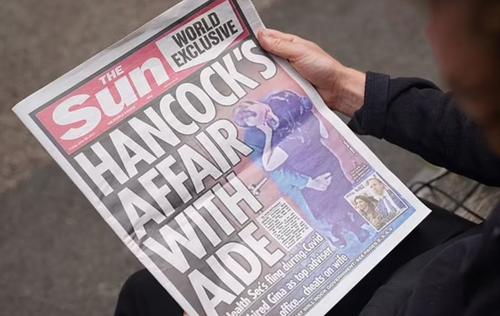Source: Zero Hedge
People who believe President Obama abused his powers by cracking on journalists are about to be even more shocked by new rules being implemented in the UK. According to the Daily Mail, journalists could face prison sentences of up to 14 years for stories that embarrass the Government under plans to reform the Official Secrets Act.
According to changes to the interpretation of the UK’s Official Secrets Act, which is being updated for the “Internet age” (which began more than 2 decades ago) and the fact that data can be transported instantaneously by Priti Patel’s Home Office. Patel apparently is opposing a “public interest exemption” that would exclude journalists from being liable under the law.
Under these new provisions, reporters could face up to 14 years in prison for publishing “unauthorized” information in the supposedly “free” and “open” west.
But in a paper released during the consultation on the revisions, the Home Office argued that such a move would “undermine our efforts to prevent damaging unauthorized disclosures, which would not be in the public interest.”
Critics of the changes, which include human-rights organizations and the Law Commission, argue that if they had been in effect at the time, they could have lead to the prosecution of the journalists who revealed this month that then-Health Secretary Matt Hancock was breaking COVID rules by having an affair with his married aide, because the scoop relied on leaked CCTV footage.
Already the government is facing backlash for its response to the leak. The Commissioner’s Office faced criticism for having two homes searched as part of an investigation into how the information on Hancock leaked.
A Home Office spokesman denied that the changes would curtail press freedoms.
“Freedom of press is an integral part of the UK’s democratic processes and the government is committed to protecting the rights and values that we hold so dear.”
“It is wrong to claim the proposals will put journalists at risk of being treated like spies and they will, rightly, remain free to hold the government to account.”
“We will introduce new legislation so security services and law enforcement agencies can tackle evolving state threats and protect sensitive data.”
“However, this will be balanced to protect press freedom and the ability for whistleblowers to hold organizations to account when there are serious allegations of wrongdoing.”
In a document explaining the changes, the Home Office argued that “the most serious” unauthorized press leaks can sometimes be even more damaging than when information is stolen for the purposes of espionage.
“As a result, we do not consider that there is necessarily a distinction in severity between espionage and the most serious unauthorised disclosures, in the same way that there was in 1989.”
“Although there are differences in the mechanics of and motivations behind espionage and unauthorised disclosure offences, there are cases where an unauthorised disclosure may be as or more serious, in terms of intent and/or damage.”
That leaves quite a bit of wiggle room for prosecutors to go after journalists by questioning the shadowy motives behind press leaks.
It’s just the latest threat to emerge against European journalists. Just days ago, the UN commented on the growing use of digital surveillance using software like Pegasus, the surveillance software developed by Israel’s NSO group, to spy on journalists and dignitaries alike.
There’s definitely one thing the two sides can agree on: the nature of spying and information gathering has changed substantially since 1989, the last time these laws were updated.


